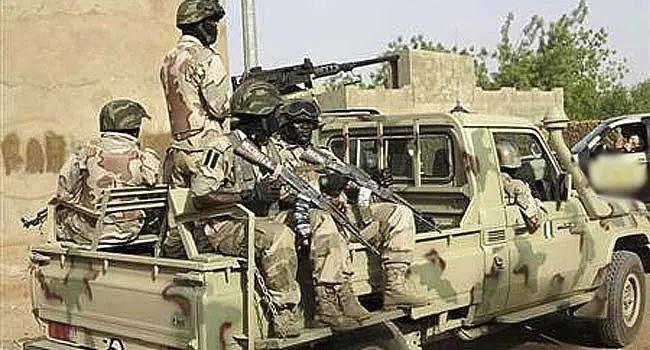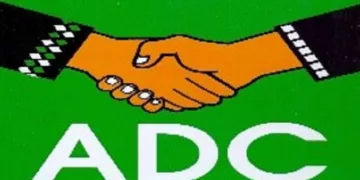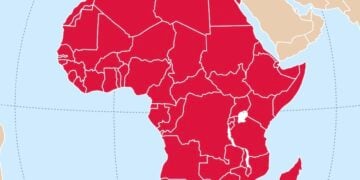Outrage was the word when news filtered in that 17 soldiers were brutally murdered in Okauma, Delta State. What outraged many Nigerians was not merely that soldiers were killed, but the manner in which they were killed that generated opprobrium.
Many Nigerians began to fear for the community as the events of Zaki Biam and Odi came to mind. We all know the military doesn’t take lightly the killings of their men by civilians.
The now-deleted tweet by the defense headquarters, which read, “the audacity,” gave a foreboding of what was about to come. Immediately, pictures started circulating on social media of the community being burnt, although the military has dismissed some of the pictures and videos as fake.
As this was going on, another dangerous narrative started flying around. In Nigeria, we are not happy if we don’t bring religion, ethnicity, and region into any matter. The narrative was that soldiers have been killed in the north severally, and the soldiers have not responded in equal measure. I think there is a difference between soldiers being killed by terrorists and misguided youths.
The last time I checked, Zaki Biam is in the north-central part of the country. And we have read several stories of the military taking out many bandits and terrorists in the north. Please, we should leave politics, religion, and ethnicity out of our military.
Even more appalling is the Senate trying to play the politics of the region in the whole matter. We are just not ready to fight corruption and insecurity in the country. If the perpetrators are from our region or religion, we try every means to deflect the blame and come up with kinds of conspiracy theories.
What is truly unforgivable is senior public officials like Senate President Godswill Akpabio fanning these flames of division and misinformation. His preposterous theory about the killers being “mercenaries” and not locals reeks of the worst form of dog-whistle politics – planting the seed that there are ulterior motives at play rather than facing up to the home-grown demons of criminality. As the nation’s third-highest-ranking official, he should know better than to indulge in such irresponsible speculation.
Insecurity and corruption have continued to fester because we tend to play this regional and ethnic card.
Enough. The murders of these soldiers, like all of the senseless killings plaguing our nation, should be condemned unreservedly. There can be no justification, no matter how aggrieved a community may feel.
Like most Nigerians have rightly said, the perpetrators of the killings of the 17 soldiers should be fished out and punished. Like President Bola Tinubu rightly said, the killings of military men should not be tolerated in a sane society. Likewise, the killings of innocent Nigerians should also not be tolerated. The community should not suffer the collateral damage of some feeble misguided individuals.
Also, this brings me to the issue of the military being overstretched. Please, what is the business of the military intervening in communal clashes? We have the military carrying out operations in at least 30 states in the country. The military has practically taken over internal security in the country.
From land disputes to ethno-religious clashes to anti-banditry operations, our troops are increasingly being turned into a national police force.
This trend needs to be urgently reversed. We must rebuild and expand our decimated police force through aggressive recruitment and training in modern policing tactics, including anti-terror and anti-insurgency operations.
More investment in technology and preemptive intelligence capabilities is critical. The military’s rules of engagement and overwhelming combat skills are ill-suited to many of the internal security challenges we face. But manpower and technology are only half the solution.
We must get at the root causes that keep spawning these security crises – lack of economic opportunities, grinding poverty, ethnic marginalization, and poor governance. Only by tackling these systemic drivers through policies promoting inclusive development and empowerment can we hope to douse the towering pandemonium of insecurity and violence that threatens to consume us all.
The murder of those 17 soldiers was indeed an unconscionable act of audacity deserving the harshest reprisal under the law. But the scourge of impunity and culture of warfare against the state itself that it represents calls for more than just tactically superior firepower as a response.
It demands a holistic effort to heal our nation’s seething fault lines and address the social schisms that create swamplands where such evil can take root and thrive. That is the real fight we face.











